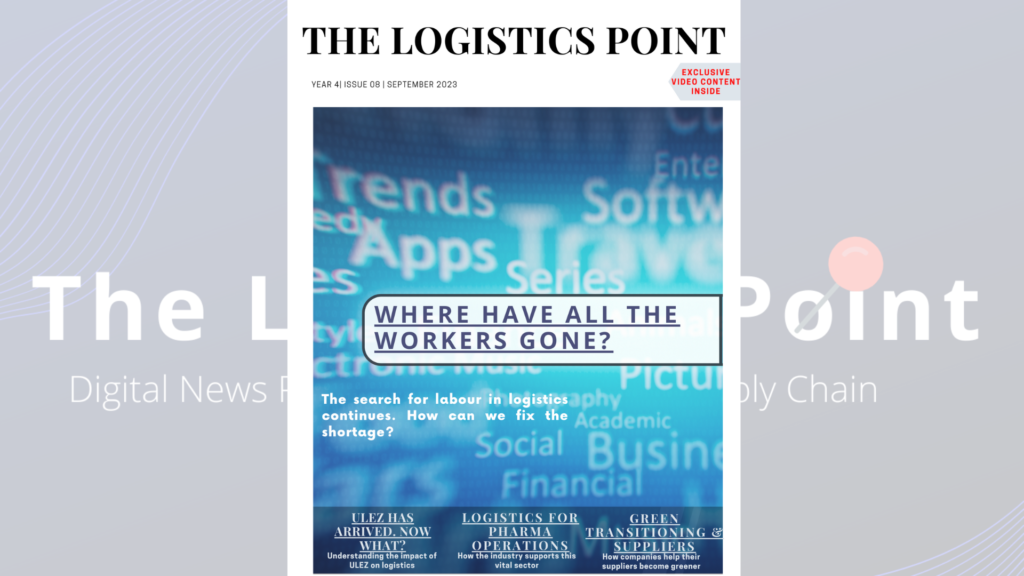The transition to EVs is one of the biggest challenges the logistics industry has faced. It seems to be slow but organisations are determined to make it work. What is the role of logistics operators, software providers, retailers and the government? We spoke to Will White, Global Head of Sustainability at last-mile delivery specialist, Stuart, about how EVs are taking over the logistics landscape and what the challenges are.

Will, how can carriers help partners with their fleet and the transition to EVs?
Consumers are calling for more sustainable delivery options, a sentiment that our clients echo. The switch to EVs is a crucial step. Within cities, EVs help to reduce emissions caused by combustion engines, as detailed in the Net Zero section of our recent Sustainability Report. Along with efficiency improvements (such as order stacking and route maximisation), the transition to EVs also helps reduce the number of vehicles on the road in urban areas, easing traffic congestion and creating more sustainable cities.
Urban, last-mile logistics experts can also provide unique data and insights to support charging infrastructure providers as they establish a network of charging stations in urban areas.

Convenient and reliable access to charging points is essential to making EVs feasible business solutions and ultimately to making last-mile deliveries more sustainable.
What about private couriers, who often use vehicles which are quite old?
We are aware that for many independent couriers, especially those who rely on older vehicles, transitioning to EVs may be more challenging due to steep upfront costs.
At Stuart, we proactively address this situation in several ways. We have partnered with an electric moped provider to set up an affordable, low-commitment rental service for independent couriers.
To date, 85+ courier partners have utilised this offering. We’ve also established partnerships with electric bike providers, which will improve access to affordable e-bike purchases and provide rental deals to independent couriers across the country. Secondly, by working with EV providers, we have introduced programmes that encourage independent couriers to voluntarily retire older, more polluting vehicles in favour of cleaner alternatives – including onboarding more bicycle couriers for short journeys. Finally, we provide ongoing technical support and guidance on maintaining and servicing EVs.
Who should foot the bill? Isn’t it easy to bring operations in-house?
It is not down to one person, sector, or organisation – various stakeholders must share the responsibility for funding the transition to EVs. Collaboration is key. Last-mile tech logistics businesses like Stuart can allocate resources to support electrification and offer financial and technical assistance to their partners and independent couriers. Businesses can choose to work with partners who prioritise sustainable delivery options. However, small businesses are already struggling with inflation, supply chain issues, and rising running costs. The government can alleviate this pressure while encouraging more sustainable practices by offering incentives, tax breaks, or subsidies for electric vehicle adoption and investing in EV infrastructure.
While bringing operations in-house may seem straightforward, it is not feasible for many companies.
Operating a fleet requires significant capital investment, expertise in fleet management, and dealing with the complexities of vehicle maintenance and charging infrastructure. Partnering with last-mile logistics businesses offers flexibility and scalability, making it a more viable option, and many will already be taking steps to encourage EV use for deliveries.
What is the role of retailers in this?
Retailers are an essential part of the solution. They can set sustainable delivery standards, including eco-friendly delivery options such as low-emission or EV deliveries. Furthermore, they can offer sustainable delivery solutions to their customers, such as consolidated or scheduled deliveries, which can reduce the number of delivery trips and, therefore, overall emissions.
Retailers can support sustainable logistics practices by preferentially partnering with logistics providers with robust sustainability practices and utilising EVs. They can also invest in their last-mile logistics partner’s sustainability initiatives, such as offering grants or subsidies to facilitate the electrification of delivery fleets. Moreover, by setting sustainability requirements for their suppliers and logistics, retailers can encourage the adoption of low-emission delivery practices and EVs throughout the supply chain. This collaborative, whole-systems approach will be essential to meeting Net Zero targets. ✷


